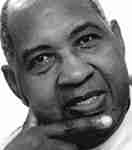Note: This is the text of a presentation I made at a meeting of the World Future Society in Orlando on July 11-14. The onsite registration fee was a whooping $950, indicating that only the rich were truly invited to attend.
Whether because of myopia or benign neglect, futurists have blatantly shied away from discussing one of the most serious social problems this nation faces – that of a rapidly growing underclass.
Simply stated, the underclass is a significant cohort of Americans who are relatively physically, mentally and emotionally healthy but permanently unemployed and unemployable.
This is a social stratum that is below the working poor. It is a class that will remain totally unaffected by an increase in the national minimum wage or the forecast of a rebounding economy.
The underclass represents a new kind of poor. A great many high-achieving African Americans will proudly tell you that they are the product of a welfare family, that they were the first in their family to graduate high school or matriculate at a university. They will talk about growing up in the projects and about parents who worked two menial jobs in order to raise upward bound children.
We cannot afford to continue to ignore the reality that the underclass will inherit and inhabit the future along with the rest of us. Ignoring them will not cause them to vanish nor will it reduce their negative influence on our quality of life.
That was a decidedly different era. With the underclass, we are talking about intergenerational poverty. We are talking about children having and trying to raise children. We are talking about people returning from having served long prison sentences and those whose plea-bargain includes felony convictions – conditions that mitigate against employability. We are talking about people who dropped out or were pushed out of school. And we are talking about people who have no marketable skills and will never acquire any.
The underclass is not a new cohort. We began to recognize this stratum during the active 1960s. In fact, the so-called “War on Poverty” was our national attempt to address this social malady, this blight that contradicted our image as the moral leader of the world.
A significant amount of money was poured into underclass areas throughout the country and effective programs were instituted and implemented. There was an aggressive recruitment to include the poor in both planning and implementation and we coined the term “maximum feasible participation” to indicate our belief that poor is not synonymous with either stupid or lazy.
We created programs such as “Mobilization for Youth” and used social workers to go from house to house to recruit school dropouts to enroll in G.E.D. programs to lay the foundation for getting a trade or a college education.
By all standards, this was an extremely effective initiative on the part of our federal government. Then, wham! At the beginning of the 1970s, the “War on Poverty” had turned to a war on poverty programs. Every one of them has been abolished except Head Start and the efforts to preserve this much-needed program is a yearly struggle in Congress.
We cannot afford to continue to ignore the reality that the underclass will inherit and inhabit the future along with the rest of us. Ignoring them will not cause them to vanish nor will it reduce their negative influence on our quality of life.
Poverty remains a primary incubator for violence and infectious diseases, conditions from which there is no immunity – regardless of our individual wealth. Therefore, helping the underclass is not simply an act of benevolence. It is, in fact, the only sustaining way to enhance the quality of life for all of us.
The theme of this conference is “What If.” I have only one “what if” question: What if we were to become as serious about eradicating poverty as we are about reducing the national deficit?
Gilbert L. Raiford is a retired social worker who has had a long career in teaching. He freelances as an expert witness in the sentencing phase of capital offense convictions. He may be reached at graiford@hotmail.com













No Comment